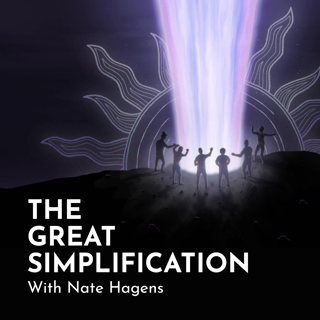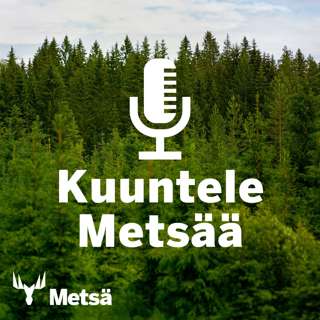
Reality, Probability, and Perception | Frankly #29
Recorded April 10, 2023 Description In this Frankly, Nate explains how he views the future from a probability perspective - a tool frequently used in industries such as finance, retirement planning, and by e.g. gamblers. While there will be only one eventual outcome, the possible paths to that future fall in a distribution, with some results much more likely than others. We can shift these results with our actions in the present. However, no one person can know this distribution perfectly, only the distribution shaped by their own bias, knowledge, and perspective. How might we use a probabilistic approach to better understand what’s possible - and even to better relate to others? By thinking of the future as a spectrum, can we avoid falling into traps of certainty and complacency that inevitably lead to inaction? While there are some outcomes that are impossible, there are still many within our power to steer towards during a Simplification. To watch on Youtube: https://youtu.be/uWn2svl6aBU For Show Notes and More: https://www.thegreatsimplification.com/frankly-original/29-reality-probability-and-perception
14 Huhti 202322min

Kim Stanley Robinson: "Climate, Fiction, and The Future"
On this episode, Nate is joined by climate science fiction author Kim Stanley Robinson to discuss how he contributes to the discussion of climate and pro-social changemaking through writing. There have been many calls to improve the communication of scientists to the general public in hopes it will help people understand the severity of the various global threats we face. A key component to such communication comes from art and literature. Even further, the humanities help us think about the type of future and culture we want to have given the information that science brings us. How can we incorporate fiction into our set of tools to bring more people into awareness of the pressing systemic dynamics underpinning global events? About Kim Stanley Robinson: Kim Stanley Robinson is an American science fiction writer. He is the author of over twenty books, including the internationally bestselling Mars trilogy, and more recently Red Moon, New York 2140, and The Ministry for the Future. He was part of the U.S. National Science Foundation’s Antarctic Artists and Writers’ Program in 1995 and 2016, and a featured speaker at COP-26 in Glasgow, as a guest of the UK government and the UN. His work has been translated into 28 languages, and won awards including the Hugo, Nebula, and World Fantasy awards. In 2016 asteroid 72432 was named “Kimrobinson.” To watch this video episode on Youtube: https://youtu.be/Xc53KPv7flk Show Notes & Links to Learn More: https://www.thegreatsimplification.com/episode/66-kim-stanley-robinson
12 Huhti 20231h 24min

The Real Global Macro | Frankly #28
Recorded April 4, 2023 Description In this Frankly, Nate shares his early Wall Street experience of ‘squawkboxes’ summarizing the daily financial Global Macro events and compares it to present day, where we find ourselves faced with the real Global Macro news - the systemic nexus of economic, environmental, and geopolitical risks and realities. From sea surface temperatures at all-time recorded highs, to the threat of nuclear war, to failing nation-states - how does a single person make sense of and cope with a 24 hour news flow reporting our increasingly chaotic world? Our cultural challenges are now far greater than stock markets and currency movements. We need people paying attention, understanding, and engaging with the ‘real’ Global Macro. To Watch on Youtube: https://youtu.be/TtYpW2GQGHc For Show Notes and More: https://www.thegreatsimplification.com/frankly-original/28-the-real-global-macro
6 Huhti 202312min

Antonio Turiel: "Deep Challenges: Oceans, Scarcity and Culture"
On this episode, physicist Antonio Turiel joins me for a wide-ranging discussion from oceans and climate to energy and culture. Oceans are one of the most important factors regulating the Earth’s climate, and yet they receive relatively little attention from the climate community. There are numerous critical risk factors to unpack regarding just the oceans alone - and still so much that we don’t know. This conversation also delves into the complexity of an economic system requiring continuous growth itself embedded in an Earth system that is already hitting its limits. What are the boundaries of our energy systems and what options do we have - and not have - for the future? Is the root of the critical issue we’re facing - not a technical problem - but a cultural problem? About Antonio Turiel: Antonio Turiel Martínez is a scientist and activist with a degree in Physics and Mathematics and a PhD in Theoretical Physics from the Autonomous University of Madrid. He works as a senior scientist at the Institute of Marine Sciences of the CSIC specializing in remote sensing, turbulence, sea surface salinity, water cycle, sea surface temperature, sea surface currents, and chlorophyll concentration. He has written more than 80 scientific articles, but he is better known as an online activist and editor of The Oil Crash blog, where he addresses sensitive issues about the depletion of conventional fossil fuel resources, such as the peak of oil and its possible implications on a world scale. To watch this video episode on Youtube → https://youtu.be/n1fIkS4y798 Show Notes & Links to Learn More: https://www.thegreatsimplification.com/episode/65-antonio-turiel
5 Huhti 20231h 42min

USA! (But wait, There’s More) | Frankly #27
Recorded March 29, 2023 Description In this Frankly, Nate reflects on the varying perspectives from which people perceive the meta-crisis relative to their own circumstances. This extends to the countries we live in and the particular economic/social situations we are part of. But each of these is part of a wider systems lens that we should at least keep in mind and respect - even if it doesn’t feel like our central cause. The challenging times ahead will have huge implications for the social progress of the last few centuries on local, national, and international levels. There will never be one solution to such grand scale problems. As we work on responding to these challenges, keeping in mind the scope and complexity of these issues might allow us to approach them from a place of empathy and compassion. To Watch on Youtube: https://www.youtube.com/watch?v=u5PZagNLa6s&list=PLdc087VsWiC5im7eWkCD0t907MbOAftb3&index=13 For Show Notes and More: https://www.thegreatsimplification.com/frankly-original/27-usa-but-wait-theres-more
31 Maalis 20238min

Andrew Millison: "Geomorphology, Permaculture, and The Good Work"
On this episode, permaculture expert and educator Andrew Millison joins us to unpack how we can better design our societal infrastructure and agriculture to be more attuned with the water, solar, and “geomorphic” conditions of our surroundings. When critical resources become scarce, it is more important than ever that communities learn to do more with less. By focusing on resiliency and stability through systems thinking, permaculture is a design system which does just that. In a world that often feels beyond our control, how can we use permaculture design to work with the land rather than against it, and regain agency in our local food, water, and social systems? About Andrew Millison: Andrew Millison is an innovative educator, storyteller and designer. He founded the Permaculture Design education program at Oregon State University (OSU) in 2009. At OSU Andrew serves as an Education Director and Senior Instructor who offers over 25 years of experience, and a playful approach to regenerative design. Andrew is also a documentary videographer who travels the world documenting epic permaculture projects in places such as India, Egypt, Mexico, Cuba, and throughout the US. You can view his videos and series on his YouTube channel. To watch this video episode on Youtube → https://youtu.be/52L4Ncs0jLk For Show Notes and More visit: https://www.thegreatsimplification.com/episode/64-andrew-millison
29 Maalis 20231h 24min

Paul Martin: "Hydrogen - The Decarbonization Problem"
On this episode, chemical engineer Paul Martin joins The Great Simplification to talk about all things hydrogen. There are many ‘Fuels of the Future’ about which the media likes to create hopeful and seamless narratives, one of the currently popular of these being hydrogen. Where does hydrogen come from and what do we already depend on hydrogen for - is it as ‘clean’ as the media leads us to believe? How can we think about hydrogen from a systems perspective to determine if it is really an energy solution - or an energy problem? What does this mean for the design of global supply chains entering into a simplified material future? About Paul Martin: Paul Martin is a Canadian chemical engineer with decades of experience making and using hydrogen and syngas. As a chemical process development specialist, Paul offers services to an international clientele via his private consultancy Spitfire Research. He is also co-founder of the Hydrogen Science Coalition, a nonprofit organization providing science-based information about hydrogen from a position free from commercial interest. For Show Notes and More visit: https://www.thegreatsimplification.com/episode/63-paul-martin To watch this video episode on Youtube → https://youtu.be/YVjEK_PjvD0
22 Maalis 20231h 21min

A Bigger Boat | Frankly #26
In this Frankly, Nate shares some context about how he thinks about the recent global banking and financial market news. How do the catalysts triggering the SVB collapse compare to the 2008 financial crisis? What might world financial market reactions indicate as we move closer to The Great Simplification? What can we learn and proactively plan for by taking a balanced, comprehensive view of the global financial system and banking? One thing to be sure of: world governments and central banks “are gonna need bigger boats” as more and more entities require bailouts and guarantees. Eventually that ‘boat’ may become so big that it will be “Too Big to Save”. Watch on Youtube: https://youtu.be/eOYU1VlwTNs For Show Notes and More: www.thegreatsimplification.com/frankly-original/26-a-bigger-boat
16 Maalis 202313min





















